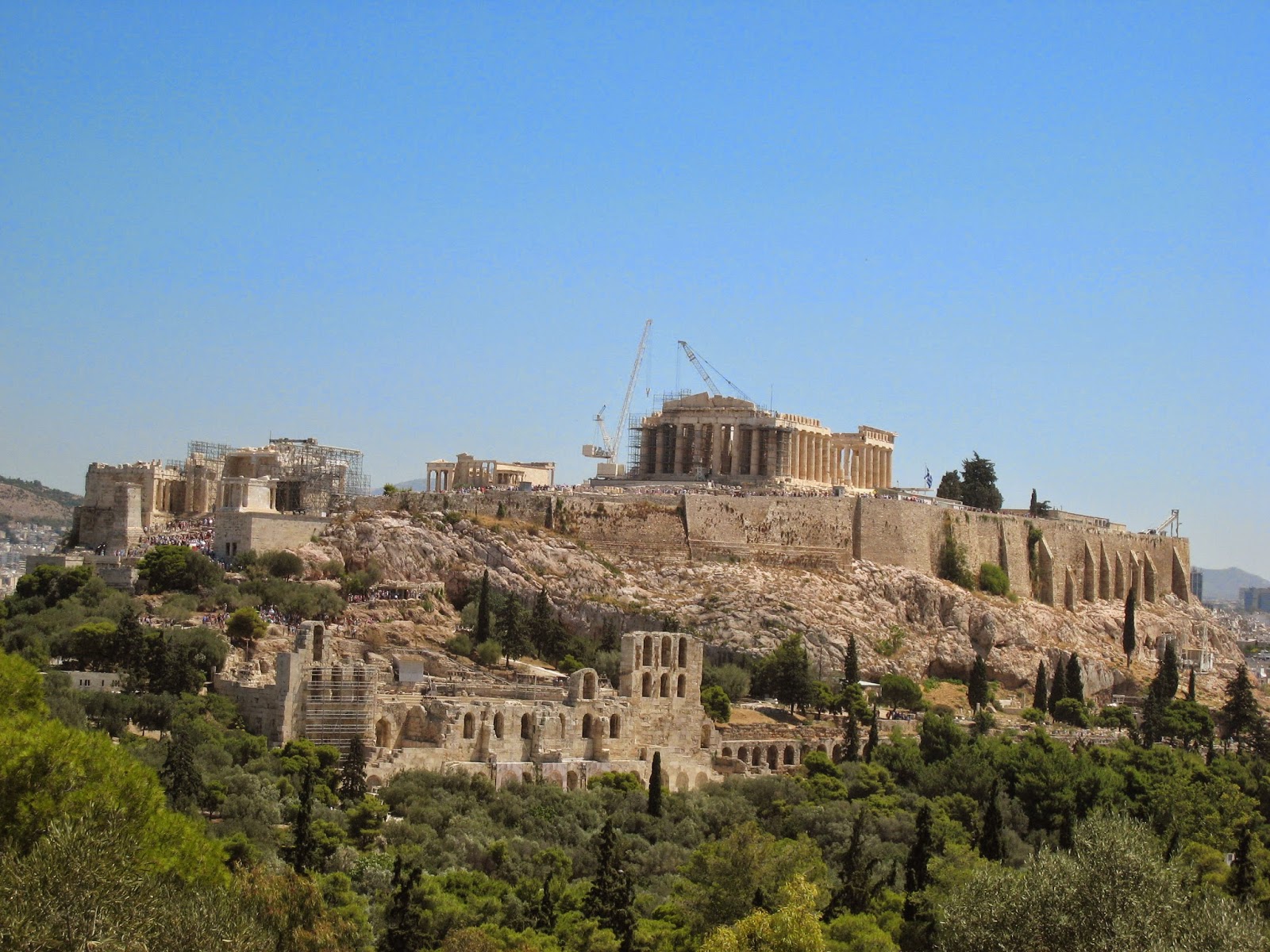Yesterday I had a field trip for my class "The City as Myth" into the center of Athens. Our destination was the Theater of Dionysus, a stone's throw from the Acropolis. When we arrived we assessed the long line and decided to change our plans. Since we had just finished reading the third play of the Oresteia trilogy by Aeschylus called "The Eumenides", we made our way to the supposed mythical site that the play took place upon. Our adjusted target is known as the Rock of Aries. The central location and elevation allowed for a fantastic view of the city and a handful of iconic monuments.
A view of the city from the Rock of Aries
View of the Stoa of Attalus
The ancient agora, part of which is still buried under the modern city
The Temple of Hephaestus
And, of course, the Acropolis
I had been on the Rock before with my UNF group on our trip to the Acropolis but unfortunately had forgotten my camera. The experience had the same effect on me this time that it had previously. Surrounded by some of the oldest and most iconic monuments in the world, I felt a sense of loss. The Rock of Aries was littered with cigarette butts, broken glass, bottle caps and even had some small graffiti tags on it. The pristine Stoa of Attalus had been rebuilt (aka restored) within the last century. The Temple of Hephaestus must have suffered a similar fate for it to look like new as well. And, as you can see clearly from the above picture, the Acropolis is covered in cranes and scaffolding that envelope the ancient buildings that call the rocky hill home. Atop a hill not too far away, known as the Hill of the Nymphs, I got an even better picture.
View of the Acropolis from the Hill of the Nymphs
Loss wasn't the only emotion that swirled through me as I looked down on these monuments. The storm inside of me (shoutout to all my Frozen fans on that reference) was a mixture of sadness, confusion, and disappointment. I talked about this in a previous post but don't feel like I got a firm grasp on how it made me feel. This time around the emotion is easier to explain. Seeing the Parthenon draped in modern equipment, knowing that the most iconic parts of it are replicas already, makes me feel betrayed. It isn't the Parthenon anymore, it is a sanitized, censored version of a marble monument that the Greeks feed to the tourists who either don't know or don't care about the difference. Even the Stoa and the several perfectly "preserved" temples feel fake and fall short of the magic I had hoped to encounter at these sites.
During yesterday's trip I vocalized my distaste for the modern intrusion on these ancient relics and was met with a retort from my professor: "What should they do, let them decay?" (I'm paraphrasing here, my memory is not the best with dialogue). After a brief pause I responded that yes, they should. Now anybody who loves these sites might cringe at my answer, shake their fist, or proceed to throw stones at me. But give me a chance to explain. The ancient Greeks didn't construct these buildings to collapse, but they also didn't build them to last forever. They were built for a purpose. Buildings like them have been destroyed countless times over the centuries in Athens, and every time the Greeks just built new ones. Would the ancient Greeks shed any tears if the Parthenon collapsed? Maybe. But would they hesitate to re-purpose the rubble and build something new? I argue that they would not. Another more romantic side of my opinion would argue that there is a beauty in the decay of these monuments. The perfect preservation feels unnatural, but there is something normal and awe-inspiring about ruins. It's the beauty of seeing the natural progression of the circle of that building's life, knowing that you are there in the 21st century but gazing on something that was born in the ancient past. "Preserving" that monument distorts time and makes the building feel unreal or out of place in the present. Ironically, our modern obsession with preservation is actually spoiling the beauty of these iconic monuments, leaving them as ruined ruins.







I actually agree with you......crumbling castle walls tell great stories!
ReplyDelete